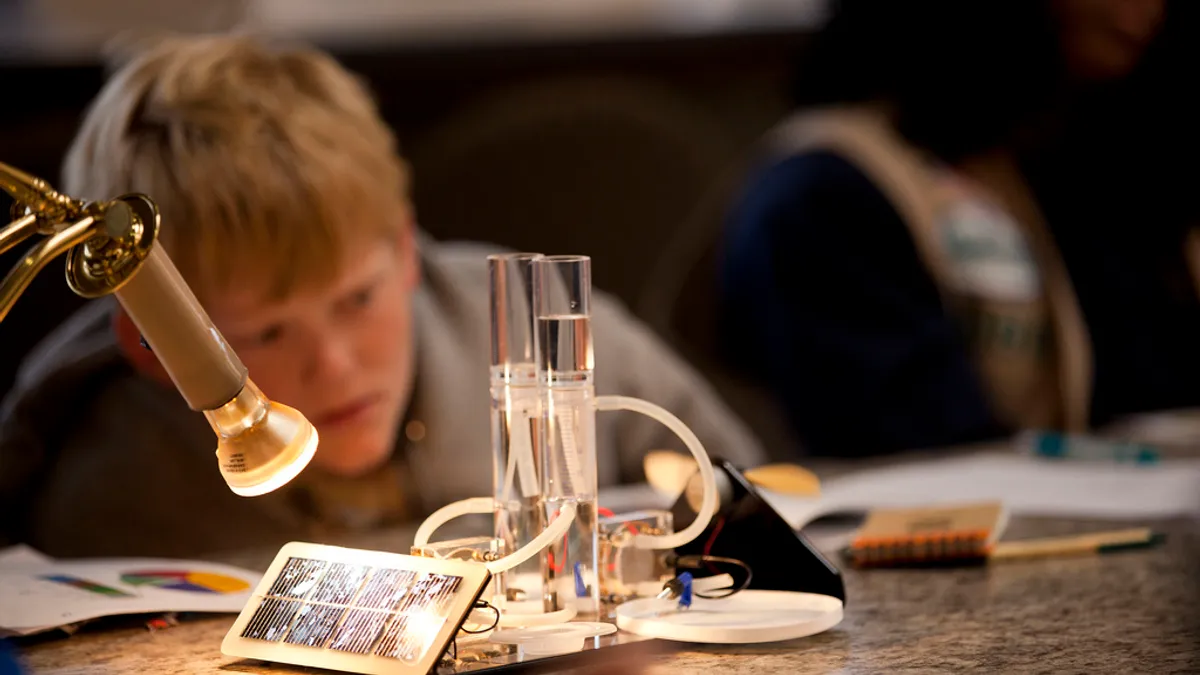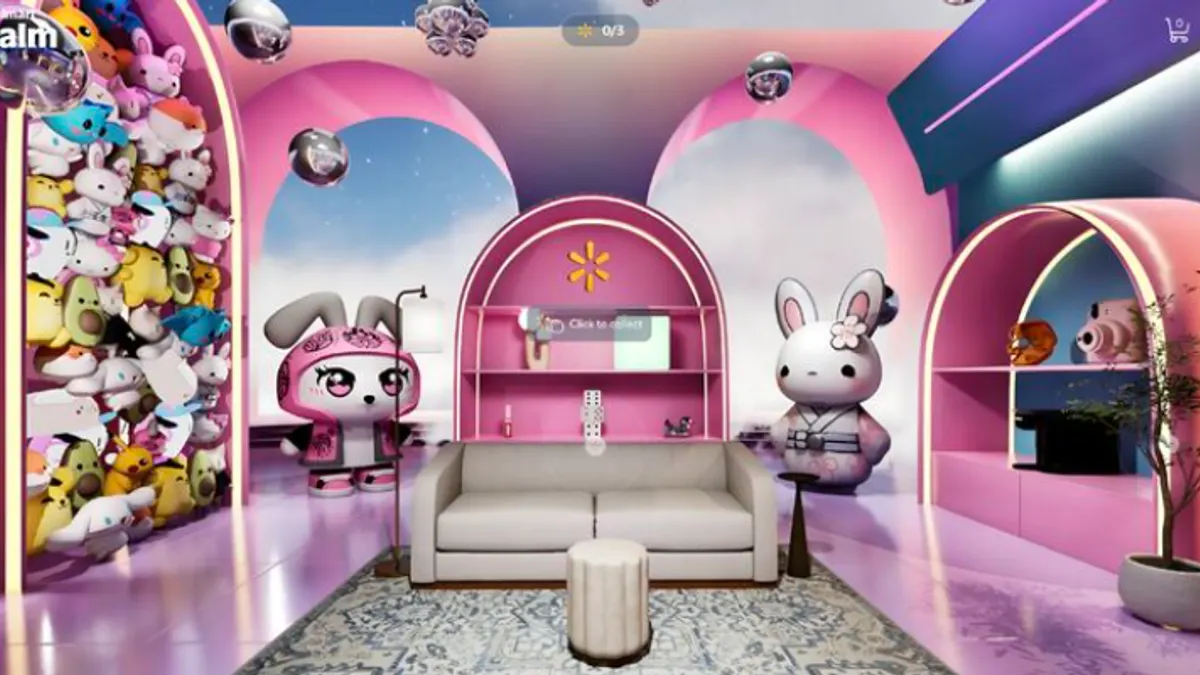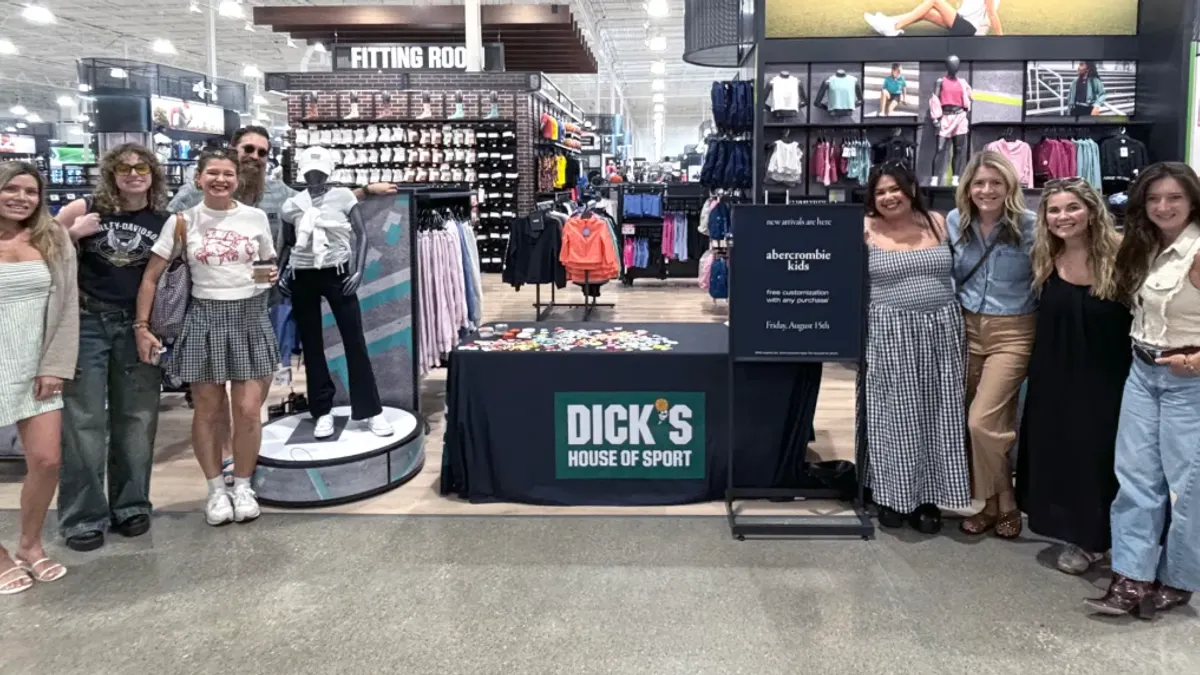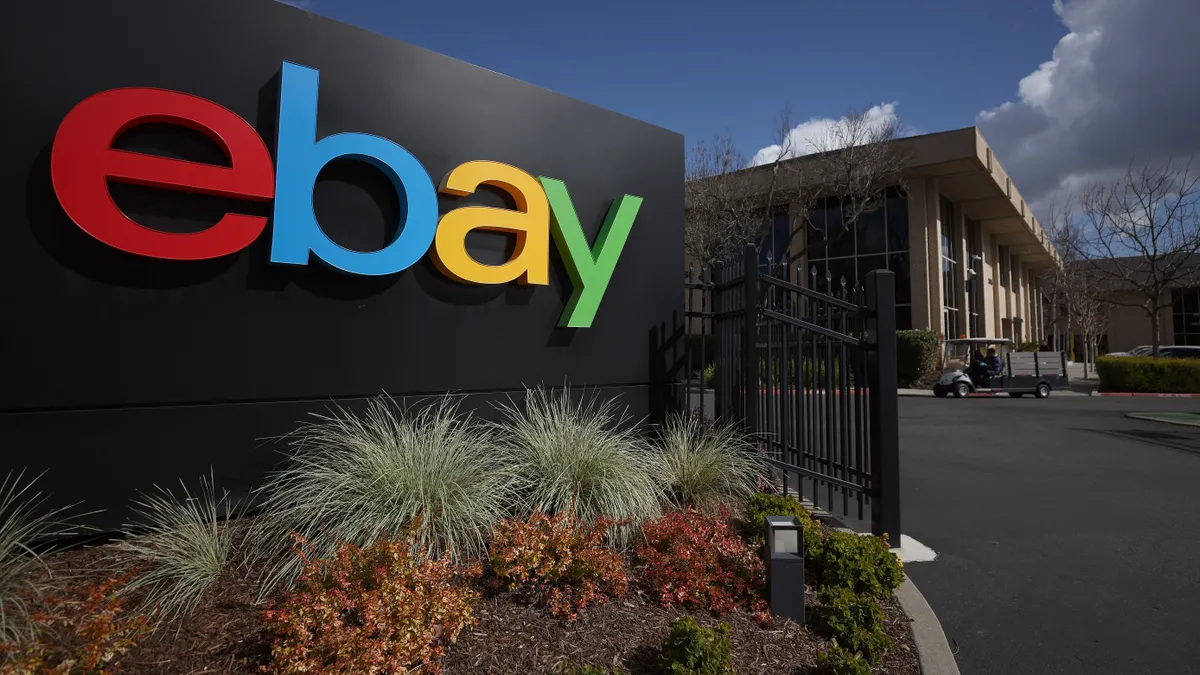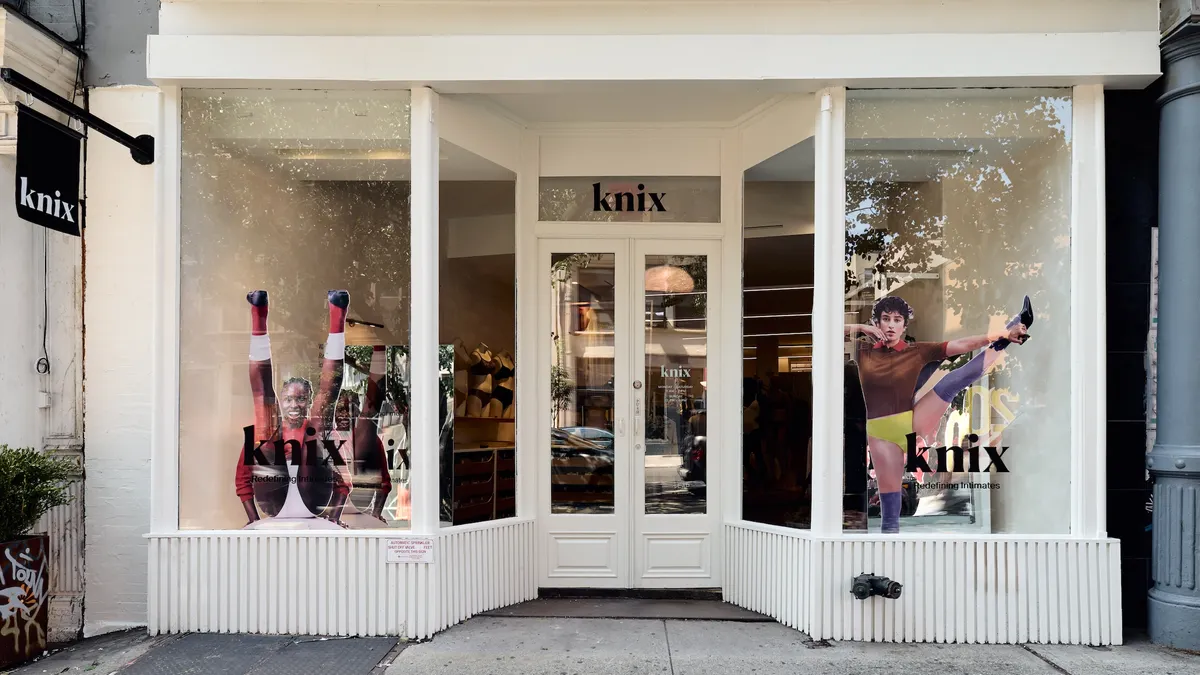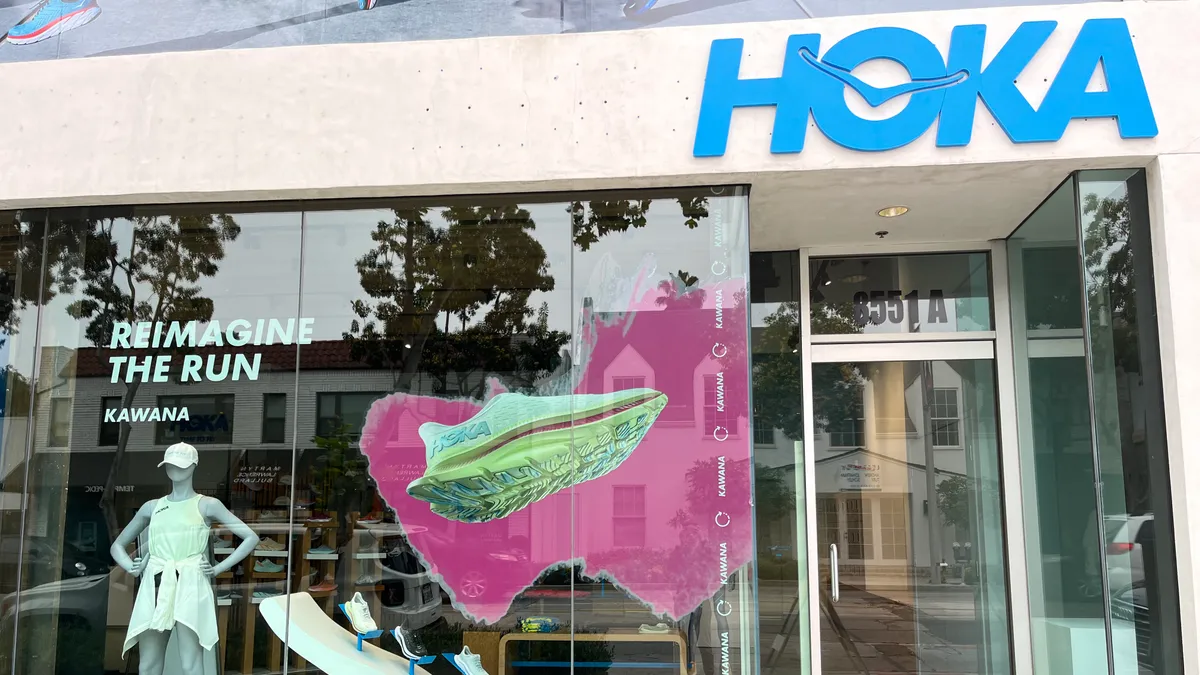Amazon’s recent launch of its STEM Toy Club subscription service shined a spotlight on a small, but increasingly popular segment of the toy market — one which offers sellers a throng of highly motivated potential buyers. However, that doesn't mean achieving sales and positive customer experiences comes easily.
The market for STEM (science, technology, engineering and math) toys represents only 2-3% of the multi-billion-dollar global toy market, according to NPD Group research, but it’s a fast-growing toy segment getting increasing attention not only from Amazon, but also from large department stores and toy retailers — both in stores and online. Many smaller niche providers of STEM toys and projects are also emerging: Young Scientists Club (YSC), MEL Science, Kiwi Crate and Steve Spangler Science Club are just a few that offer their products via both subscription and retail channels.
Esther Novis, founder and CEO of YSC, which sells STEM projects through museum shops, retailers, via its own subscription service and most recently through Amazon’s STEM Toy Club, told Retail Dive, “This market has become a lot more competitive with STEM becoming more popular as a marketing term, but it's one where we have a long-term relationship with many of our customers."
Though Amazon has been operating its subscription service only since late January, and hasn't revealed any details about subscription numbers, Eva Lorenz, general manager of Toys & Games at Amazon, told Retail Dive in an email, "STEM Club was designed with busy parents in mind, and we are pleased by the initial response from customers."
Still, STEM toys and project kits should not be viewed as child's play by the brick-and-mortar and e-commerce companies that choose to devote more marketing energy to the segment. They need to aggressively navigate an increasingly crowded market, but remain careful not to betray the trust of parents ready to spend money on STEM toys and projects with their children’s education welfare and prospects in mind.
The STEM of an opportunity
The STEM toy market is growing from the roots of the broader STEM education and cultural movement. Globally, there is rampant dissatisfaction among parents with traditional schooling, growing pressure on parents and their children to compete for limited spots in premium schools and education programs, and an increasing association between STEM education and the empowerment of young women and girls to pursue career paths they traditionally haven’t been encouraged to pursue.
“We live in a progressively competitive culture in which children as young as four are being interviewed to get into kindergartens," Richard Gottlieb, CEO of consulting firm Global Toy Experts, told Retail Dive in an email. "It is therefore no wonder that parents who want their children to compete are looking for toys that will educate their children as they play.”
Gottlieb likened this approach to the vitamin industry’s marketing of “gummy vitamins,” as it makes something good for them that they might otherwise associate with school or work go down easier.
“STEM has become a fabulous term for marketers to use because parents buy into it, but it has been around for years. For it to be effective, it needs to be used correctly.”

Jennifer Stein
Youth and family product editor at New York Amsterdam News
There is a need among parents to influence the development of their children without resorting to lecturing them, Vassili Phillipov, co-founder of MEL Science, which has offered STEM-oriented project kits via subscription for close to two years, told Retail Dive. “I have not seen many parents who are satisfied with what schools can offer in terms of science education,” he said.
STEM toys and project kits offer parents a potential way to fill that gap they fear exists in their children’s education without associating it with the everyday drudgery of schooling. Amazon's STEM Toy Club aims to give them exactly that, in the form of a new STEM toy, building kit or project sent to them each month for a reoccurring subscription fee of $19.99.
“What Amazon’s doing is smart because it makes it easier to get STEM products, but Amazon is actually late to the game,” Jennifer Stein, youth and family product editor at New York Amsterdam News, told Retail Dive. “STEM has become a fabulous term for marketers to use because parents buy into it, but it has been around for years. For it to be effective, it needs to be used correctly.”
A toy market story
The STEM Toy Club subscription isn’t Amazon’s first foray into the market, as the company launched a STEM toy storefront on its site more than two year ago. As Stein noted, Amazon also isn’t the first retailer — or even the first subscription provider — to enter the market. Several large retailers, such as Target, Wal-Mart and Toys "R" Us already have STEM toy displays in their stores and STEM toy landing pages on their web sites, In addition, companies like YSC and MEL Science, among others, already offer subscriptions services that allow parents to have age-appropriate project kits sent to their children each month.
Phillipov, of MEL Science, told Retail Dive that a subscription service is the perfect platform through which to sell STEM products. “Because it is a system, not a one-time toy you buy, play with once or twice and forget."
A subscription sets up a long-term pattern under which kids work on and expect to solve a different challenge every month. “You would be stupid to think your kids can have better science education by playing a couple of hours with one toy,” he said.
While Amazon traditionally has caused competitive upheaval in many markets it has entered, Phillipov doesn’t see Amazon’s STEM Toy Club as a competitive threat. ”Amazon's strategy is different,” he said. “They do not develop their own products. While Amazon just chooses nice STEM-related toys to play with, I would say the educational element in much stronger in MEL [kits].”
He noted that his company’s kits offer an opportunity for ongoing engagement by letting kids track their progress with different experiments on MEL’s web site. However, he added that Amazon's increasing participation in the STEM product market should help the market overall. “In general, more players on the market is better,” he said. “Our kids need more services that will help them to love science and learn more about it.”
For some independent sellers, Amazon represents a new, powerful marketing channel. For example, among the club’s offerings are engineering lab and science lab project kits from YSC that the company also sells though its own channels.
"Ultimately, everyone will benefit as Amazon raises the profile for STEM-based products.”

Richard Gottlieb
CEO of consulting firm Global Toy Experts
“We have couple of our projects in Amazon’s club, and they sell really well,” Novis said. Though she added that the club represents a fairly small amount fo revenue to YSC. Instead, she said most of its business comes through families that have become multi-generation fans of its kits over the company’s 18-year history, and have specifically sought out the company’s subscription offerings based on reputation.
Ultimately, Amazon’s STEM Toy Club product selection is broad enough that it doesn’t necessarily compete with niche project kit providers. It's ability to provide a broad selection also could help grow the segment beyond the single-digit toy market share it registers right now.
Gottlieb, of Global Toy Experts, said independent STEM product sellers might want to explore the opportunity to sell through Amazon’s club. “It’s a natural conduit to parents,” he said. “I think ultimately everyone will benefit as Amazon raises the profile for STEM-based products.”
No kidding around
Amazon’s ability to raise the profile of the STEM toy and project kit market will be welcome among toy marketers looking for a new channel, but it’s latest move comes at a time when the market might be getting over-saturated, and encountering a problem of products being marketed as STEM not meeting STEM standards.
For example, Stein said STEM toys aren't simply toys that require assembly or that produce an effect. "They must present children with a problem to solve, a challenge to be figured out. A good STEM toy actually gives them the opportunity to do something incorrectly, because failure presents you with the question, 'What are you going to about it, and how are you going to figure its out?' That's something everyone needs to learn."
But, Novis said the market's growing profile means that it has attracted an increasing number of products "being marketed as STEM, but they are not actually STEM. It's great that this market is getting so much attention, but in some cases, there is the danger of the public getting deceived."
It's no surprise that many of the parents demanding better education options for their children outside of school also hold high standards for the quality and value of STEM products they buy their children. The parents who buy kits from companies like MEL Science and YSC are usually very informed customers who have put in a lot of time researching those providers and their products, Novis and Phillipov said.
Meanwhile, the nature of Amazon’s STEM Toy Club means subscribers don’t know what they are getting until it arrives. The product reviews section on Amazon’s STEM Toy Club page shows a spate of very negative reviews mixed in with some positive ones. To be clear, 71% of the reviews when Retail Dive visited the page in early May were four stars or above, but as might be typical, the negative ones were exceptionally detailed and strongly worded.
For example, a review posted Jan. 30 by a subscriber identified as "Malesa" read in part, "Skip the subscription and go buy some Melissa and Doug toys instead. You will be able to get twice as many for the same price and they are far better quality. Shame on Amazon for marketing this subscription this way."
"Parents are out there looking for products that give their kids a hands-on learning experience. If you give them that, they will come back again and again."

Esther Novis
Founder and CEO of YSC
Lorenz acknowledged the negative reviews, and said, "Customer feedback is very important to us here at Amazon, especially for newer programs such as STEM Club as it helps us better serve customers right out of the gate. In fact, based on initial feedback, we recently updated some of the toys in STEM Club and quickly expanded to offer international shipping." (Amazon posted a similar response to several of the negative comments on the STEM Toy Club reviews section.)
Lorenz added that Amazon has been careful about choosing toys and kits for the club. "Amazon’s passionate toy experts hand-select STEM toys for each age group for inclusion in STEM Club, so parents can rest assured knowing they are receiving great STEM toys for their young learners," she said. "We work with key vendors, various STEM organizations, parents and kids to ensure we offer age-appropriate STEM products that both kids and parents will love."
YSC's Novis backed up that claim, saying she believes Amazon has worked hard to get its product selection for the toy club right, but said the wide selection and structure of the program make it an easy target for criticism. “I feel like they were very picky about including the right toys, and have become even more careful about it,” she said. “But, the nature of things is even if a lot of people are happy, you can have that small group who's unhappy and vocal about it.”
These are the challenges that not just Amazon, but any retailer marketing STEM toys and kits for kids must deal with head-on.
Ultimately, as in many market segments, the rewards are great for sellers who deal with these challenges and work hard to meet customer expectations. Novis, referring to the years of loyalty YSC has earned from the customers that subscribe to its own service, said, "Parents are out there looking for products that give their kids a hands-on learning experience. If you give them that, they will come back again and again."


